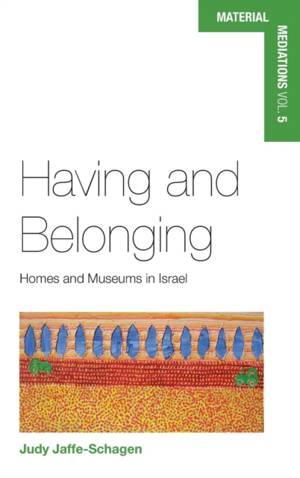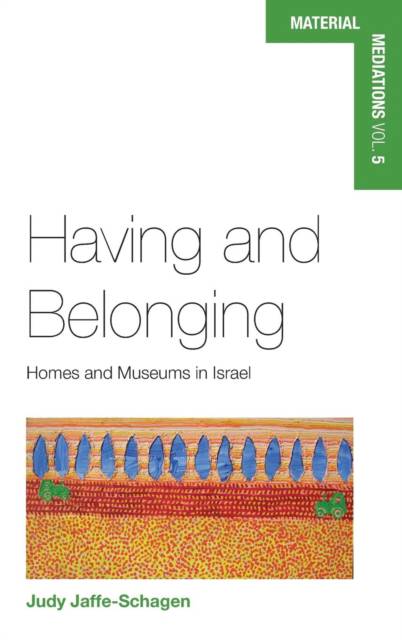
- Retrait gratuit dans votre magasin Club
- 7.000.000 titres dans notre catalogue
- Payer en toute sécurité
- Toujours un magasin près de chez vous
- Retrait gratuit dans votre magasin Club
- 7.000.0000 titres dans notre catalogue
- Payer en toute sécurité
- Toujours un magasin près de chez vous
Description
The home and the museum are typically understood as divergent, even oppositional, social realms: whereas one evokes privacy and familial intimacy, the other is conceived of as a public institution oriented around various forms of civic identity. This meticulous, insightful book draws striking connections between both spheres, which play similar roles by housing objects and generating social narratives. Through fascinating explorations of the museums and domestic spaces of eight representative Israeli communities-Chabad, Moroccan, Iraqi, Ethiopian, Russian, Religious-Zionist, Christian Arab, and Muslim Arab-it gives a powerful account of museums' role in state formation, proposing a new approach to collecting and categorizing particularly well-suited to societies in conflict.
Spécifications
Parties prenantes
- Auteur(s) :
- Editeur:
Contenu
- Nombre de pages :
- 233
- Langue:
- Anglais
- Collection :
- Tome:
- n° 5
Caractéristiques
- EAN:
- 9781785331343
- Date de parution :
- 01-04-16
- Format:
- Livre relié
- Format numérique:
- Genaaid
- Dimensions :
- 155 mm x 231 mm
- Poids :
- 521 g

Les avis
Nous publions uniquement les avis qui respectent les conditions requises. Consultez nos conditions pour les avis.






